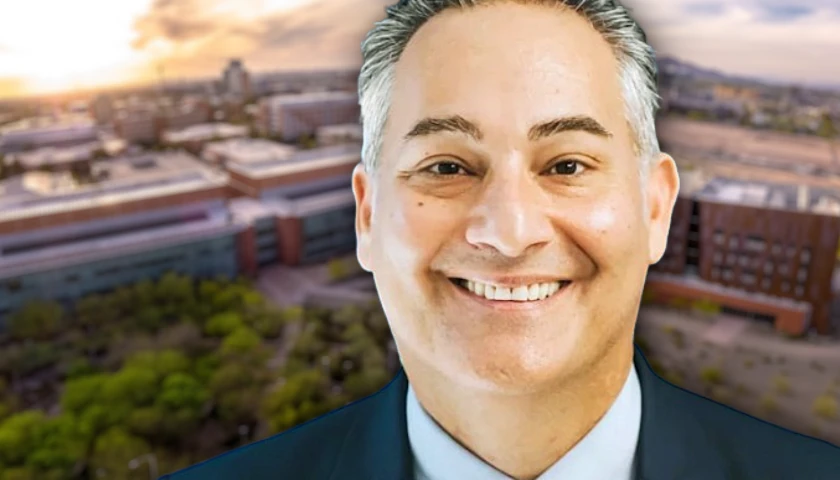As part of a recent questionnaire that WKRN gave to Metro Nashville mayoral hopefuls, the candidates had the opportunity to tell voters their plans to work with the State and repair the strife that has been growing in recent years.
The 10 candidates who participated in the recent mayoral forum hosted by WKRN all submitted answers.
The question presented to the candidates in WKRN’s questionnaire was, “If elected, how would you work to repair the relationship between the Metro Nashville government and the state government?”
The next mayor will need to grapple the far-left majority held by Metro Council office holders in its relationship with the supermajority held by conservatives at the general assembly. In recent years, the State has threatened to cut Metro Council in half, and advanced a bill to strip Metro of its control of BNA. The conflict isn’t limited to more recent years. In 2017, then-Mayor Megan Barry heavily opposed a bill that required cities and counties to enhance security at public venues or allow permit holders to carry handguns.
This year’s candidates hope to have a better relationship with the state – or at least work to attain a better deal for Metro.
Metro Council Member Freddie O’Connell (pictured above, middle) is willing to “revisit the relationship between Metro Nashville and the state government, but it needs to come from a place where Nashville asserts our power.” He argues that Metro, as a huge revenue source for the State, can leverage “the money that these state legislators use to improve their far-away counties and to fund state-based programs.”
State Senator Jeff Yarbro (D-Nashville) said that his time in the legislature has given him a unique understanding of the relationship between the State and Metro. He said his strategy would have three components: “(1) communicating consistently and frequently with the Governor, key executive branch departments, and state legislators, particularly those in leadership; (2) focusing on common ground, common interests, and common sense so that our partnerships and joint undertakings become more notable than our conflicts, and (3) building coalitions within the city and across the state.”
Metro Council Member At-Large Sharon Hurt said, “Nashville is the economic engine of the state, so much of the state tax revenue comes from us, and the state knows that. They need to cooperate with us for the sake of both of us.” She also argued that it is “hypocritical that the state would take a state’s right stance with the federal government but then abuse their power to interfere with city rights.”
Taking a more contentious tact, State Senator Heidi Campbell (D-Nashville) (pictured above, left) asserted that Metro Nashville is “in the midst of an attempted hostile takeover by the state right now.” She said that the city “needs a mayor with the temperament, experience, and relationships to navigate the complicated landscape ahead, especially when it comes to defending our city and our values,” touting her experience working across the aisle in the State Legislature as relevant experience.
Former AllianceBernstein COO Jim Gingrich (pictured above, right) took a more bellicose stance. He noted that Nashville has accounted for nearly 50 percent of the state’s economic growth over the last years, a boon that also benefits the surrounding counties. Thus, he argued, Nashville should band together with the surrounding counties to “address the challenges we collectively face” with the General Assembly.
In her answer, Natisha Brooks said she wanted to strive for a working relationship with the State Legislature regarding bills that would affect Metro, and, moreover, be more amicable on the issues of “National Conventions – RNC/DNC/Church Conventions and all other major conventions that want to host their events here in Nashville.”
Former Lamar Alexander aide Alice Rolli took a more favorable view of the state, saying that “Nashville voters have found themselves so frustrated with inaction at Nashville’s City Hall, they have gone to the state for relief.” She says that her experience “working both at the federal level for retired U.S. Sen. Lamar Alexander and the state level as Asst. Commissioner for Economic and Community Development for Gov. Bill Haslam provides me with a unique blend of relationships which we can put to work on day one to better leverage state and federal dollars to effectively solve problems for our citizens.”
Davidson County Property Assessor Vivian Wilhoite argued that partisan politics should not have a part in Metro government, specifically revealing her thoughts that “Metro Council should not have kept the Republican National Committee from coming to Nashville.”
Matt Wiltshire said that he will look to develop relationships that put Nashville “in a stronger position to stand up for our principles.”
The upcoming mayoral election will take place on August 3rd, with early voting running from July 14-29. The voter registration deadline for the election is on July 5th. If necessary, a runoff election will take place September 14th.
– – –
Mac Roberts is a reporter at The Tennessee Star. Email tips to [email protected].
Photo “Heidi Campbell” by Heidi Campbell. Photo “Freddie O’Connell” by Freddie O’Connell. Photo “Jim Gingrich” by Jim Gingrich.








